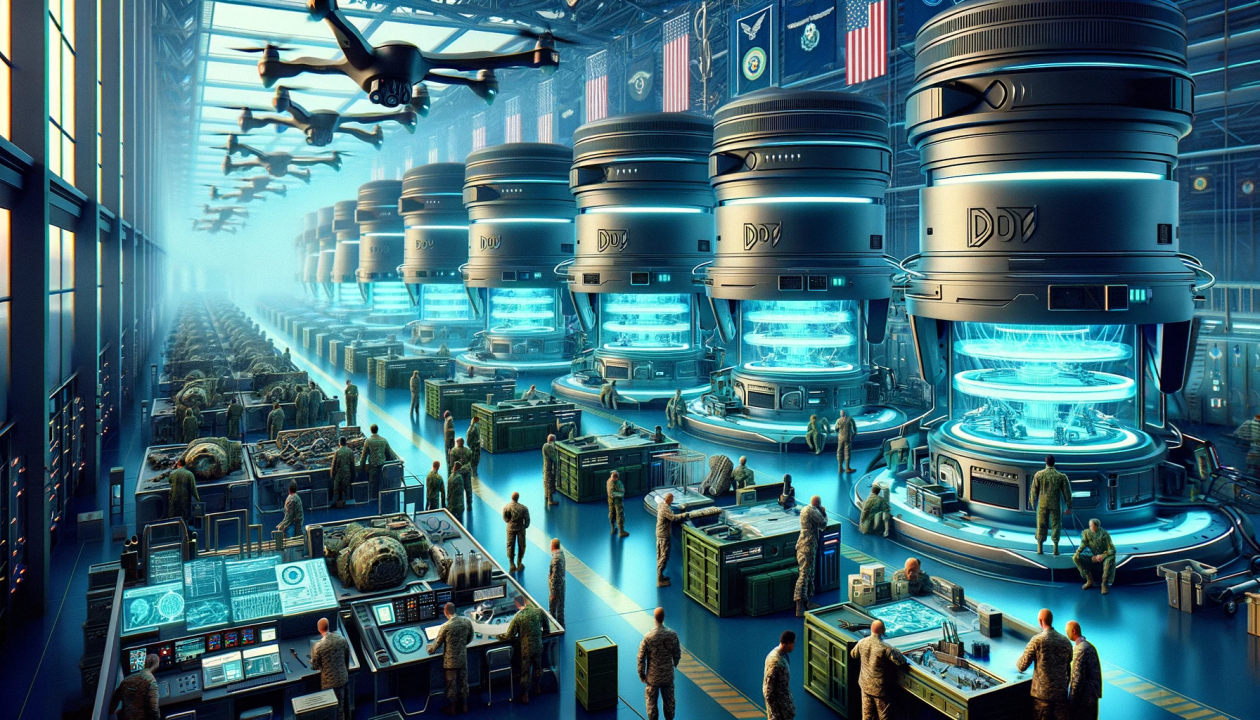The world of warfare is on the brink of a revolution, and at the heart of this transformation is Artificial Intelligence (AI). As technology continues to advance at a rapid pace, the role of AI in warfare becomes increasingly crucial. In this article, we will delve into how AI will change warfare and explore its potential impacts on the future of combat.

The Role of AI in Modern Warfare
AI is already reshaping the landscape of warfare by enhancing decision-making, improving efficiency, and reducing human error. The ability to process vast amounts of data in real-time allows AI systems to provide military personnel with vital insights and strategic advantages.
AI and Decision-Making in Combat
One of the most significant impacts of AI in warfare is its ability to assist in decision-making processes. By analyzing data from various sources, AI systems can offer commanders real-time insights that improve situational awareness and strategic planning.
For instance, AI can analyze satellite imagery, weather patterns, and troop movements to provide a comprehensive view of the battlefield. This information allows military leaders to make informed decisions quickly, which can be the difference between victory and defeat.
Reducing Human Risk with AI
Another significant benefit of AI in warfare is its potential to reduce human risk. By deploying autonomous systems such as drones and unmanned vehicles, military forces can conduct dangerous missions without putting human lives in jeopardy.
These AI-driven systems can perform reconnaissance, surveillance, and even combat operations, freeing up personnel for other critical tasks. This shift not only enhances operational efficiency but also minimizes casualties on the battlefield.
The Future of AI in Warfare
As we look to the future, the potential for AI in warfare continues to grow. With advancements in machine learning, robotics, and data analytics, AI systems will become even more sophisticated and capable.
AI-Driven Autonomous Systems
One area where AI will have a profound impact is in the development of autonomous systems. These systems can operate independently, making decisions and executing tasks without human intervention.
Imagine a scenario where swarms of AI-powered drones work together to complete a mission, communicating and coordinating with each other seamlessly. This level of autonomy could revolutionize the way military operations are conducted.
AI and Cyber Warfare
In addition to physical combat, AI is also poised to play a significant role in cyber warfare. With the ability to detect and respond to cyber threats in real-time, AI systems can protect critical infrastructure and sensitive information from adversaries.
The integration of AI in cyber defense strategies will be crucial in safeguarding national security in an increasingly digital world.
Challenges and Ethical Considerations
While the potential benefits of AI in warfare are immense, there are also challenges and ethical considerations that must be addressed. The reliance on AI systems raises questions about accountability, transparency, and the potential for unintended consequences.
Accountability in AI-Driven Warfare
One of the primary concerns with AI in warfare is accountability. When autonomous systems make decisions, determining who is responsible for those actions can be challenging.
This lack of accountability raises ethical questions about the use of AI in combat and the potential for unintended harm.
Ensuring Ethical AI Deployment
To address these concerns, it is essential to establish clear guidelines and regulations for the deployment of AI in warfare. This includes ensuring that AI systems are transparent, reliable, and aligned with international humanitarian laws.
By prioritizing ethical considerations, we can harness the power of AI in warfare while minimizing the risks.
Conclusion
The future of warfare is undeniably intertwined with the advancements in AI technology. As AI continues to change warfare, it offers the potential for increased efficiency, reduced human risk, and enhanced decision-making.
However, it is crucial to approach these advancements with caution, addressing ethical considerations and ensuring accountability. By doing so, we can leverage the power of AI to create a safer and more secure world.

Frequently Asked Questions
What are the benefits of AI in warfare?
AI offers numerous benefits in warfare, including improved decision-making, enhanced efficiency, and reduced human risk. By analyzing vast amounts of data, AI systems provide military personnel with real-time insights and strategic advantages.
How can AI reduce human risk in combat?
AI reduces human risk by deploying autonomous systems such as drones and unmanned vehicles to conduct dangerous missions. These systems can perform reconnaissance, surveillance, and combat operations, minimizing casualties on the battlefield.
What are the ethical considerations of AI in warfare?
Ethical considerations of AI in warfare include accountability, transparency, and the potential for unintended consequences. It is essential to establish guidelines and regulations to ensure the responsible deployment of AI systems in combat.
For further insights on the role of AI in modern warfare, you can visit Defense.gov.

